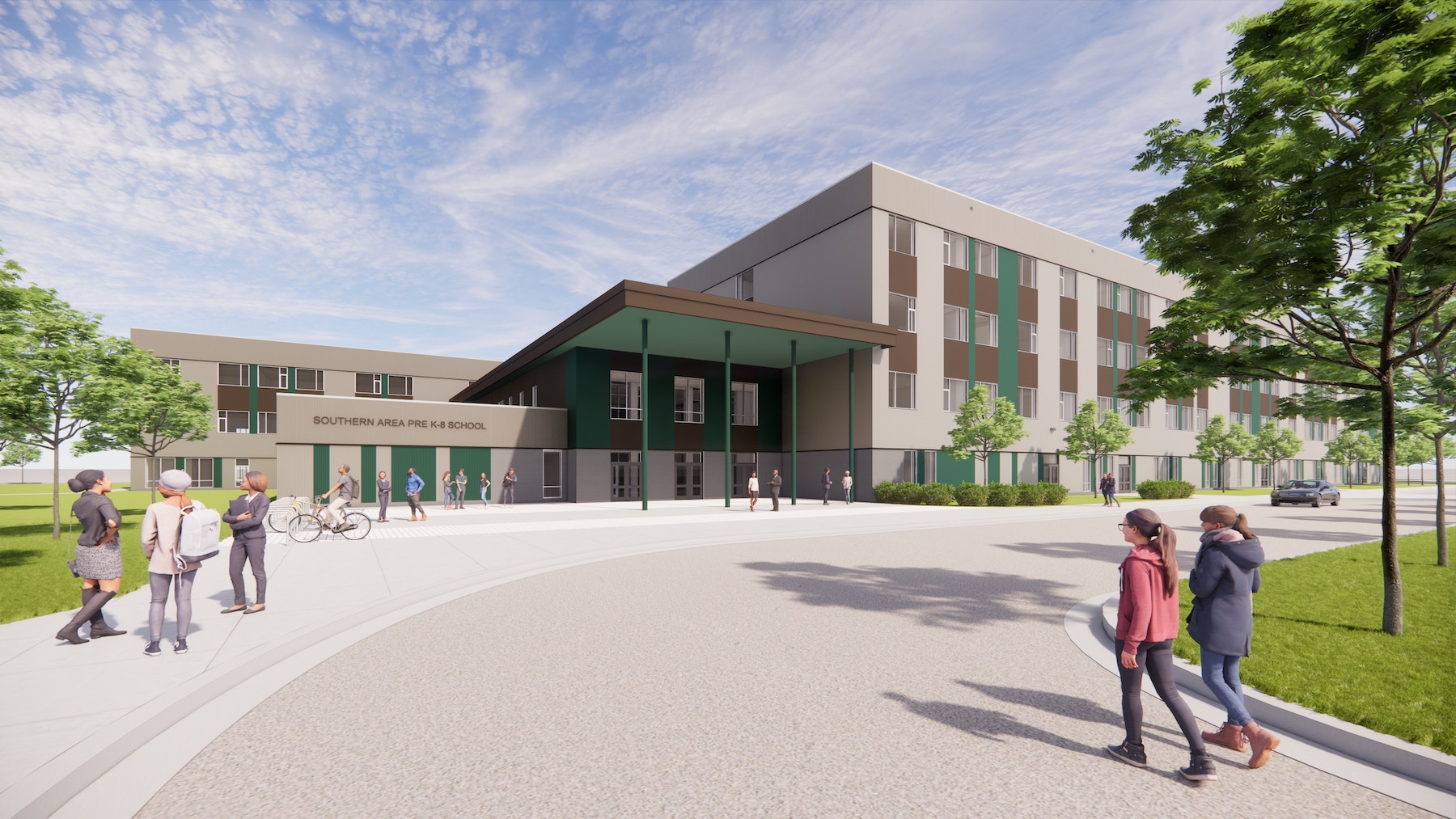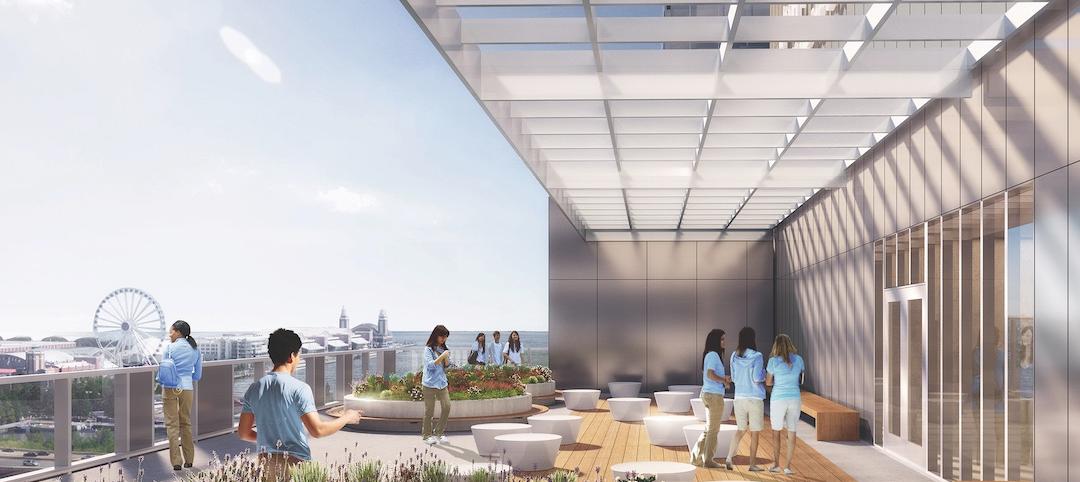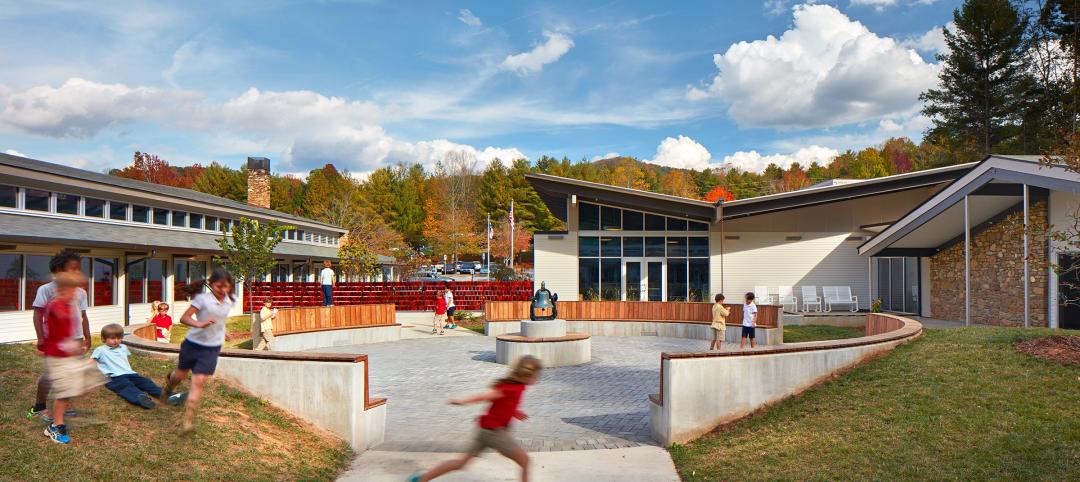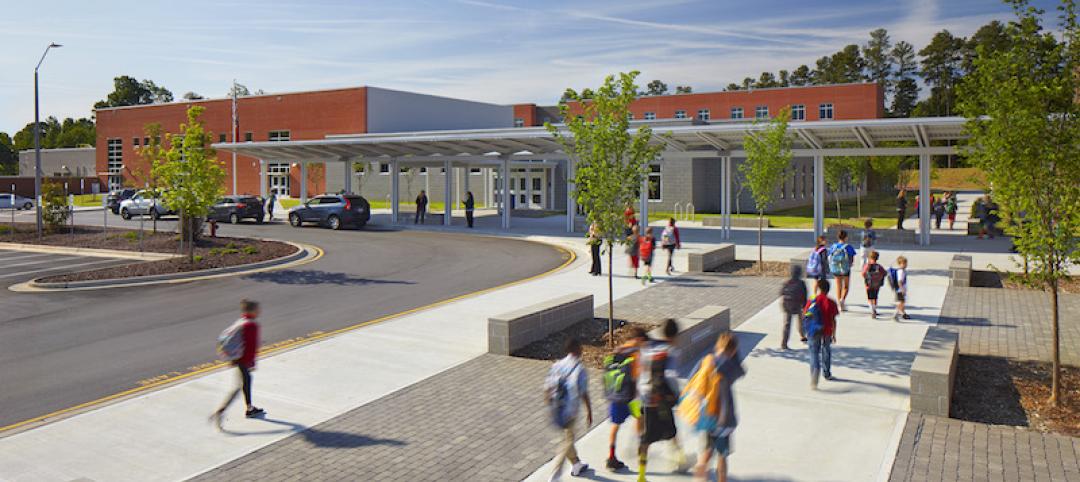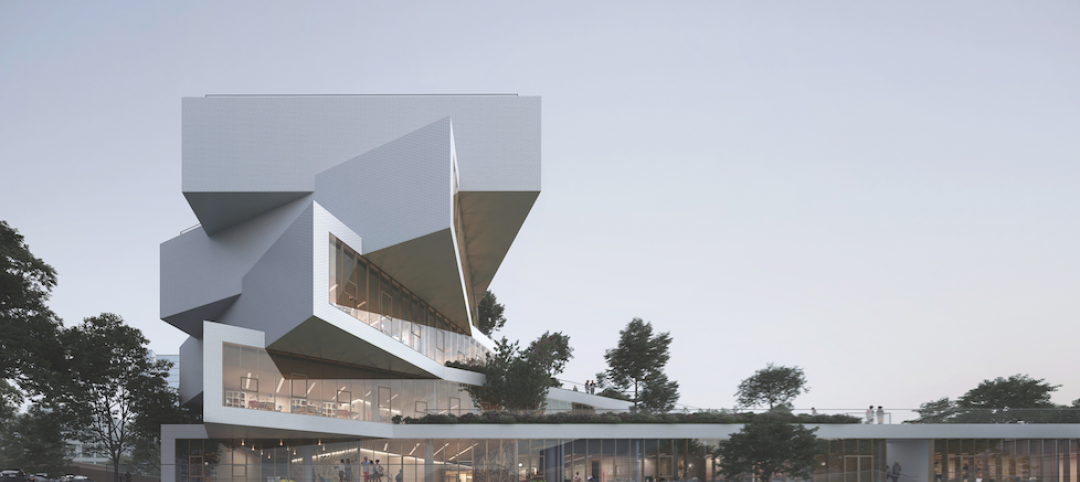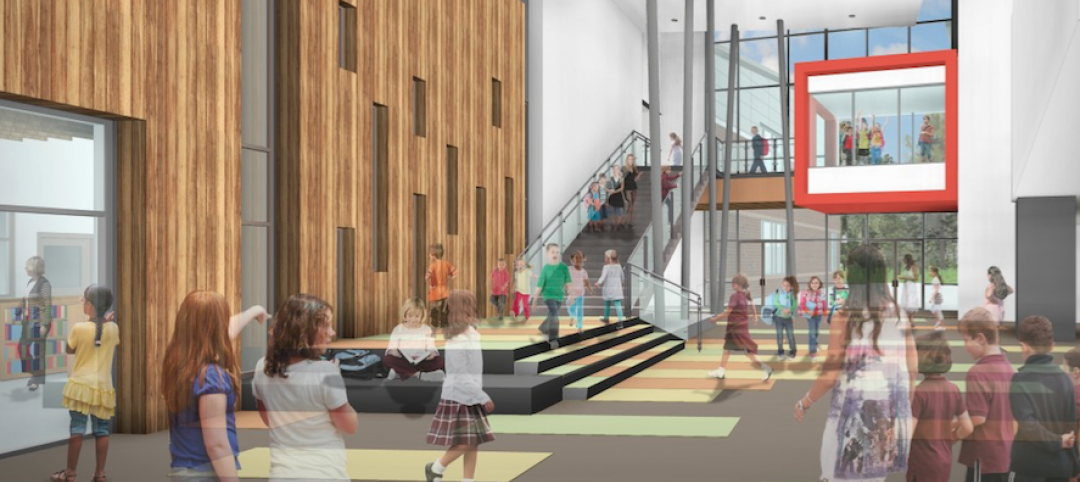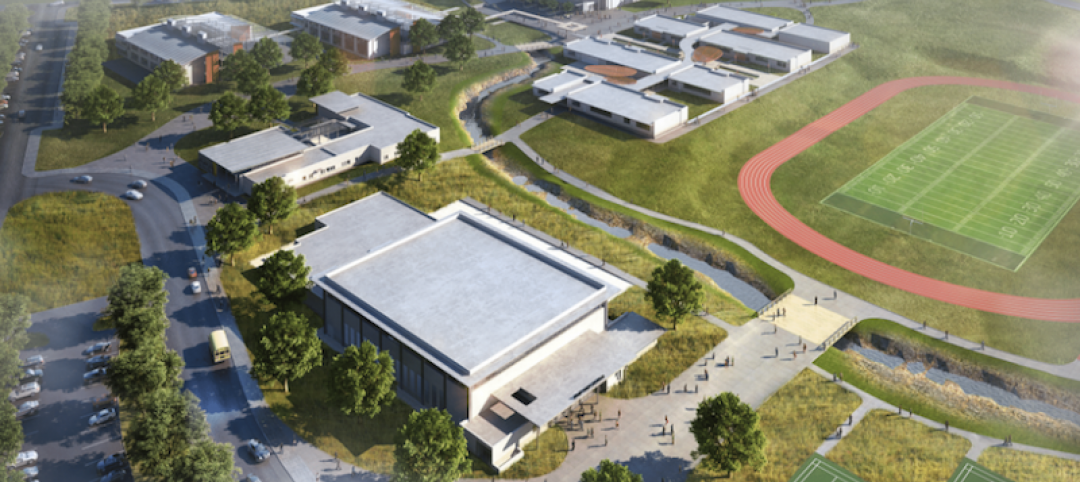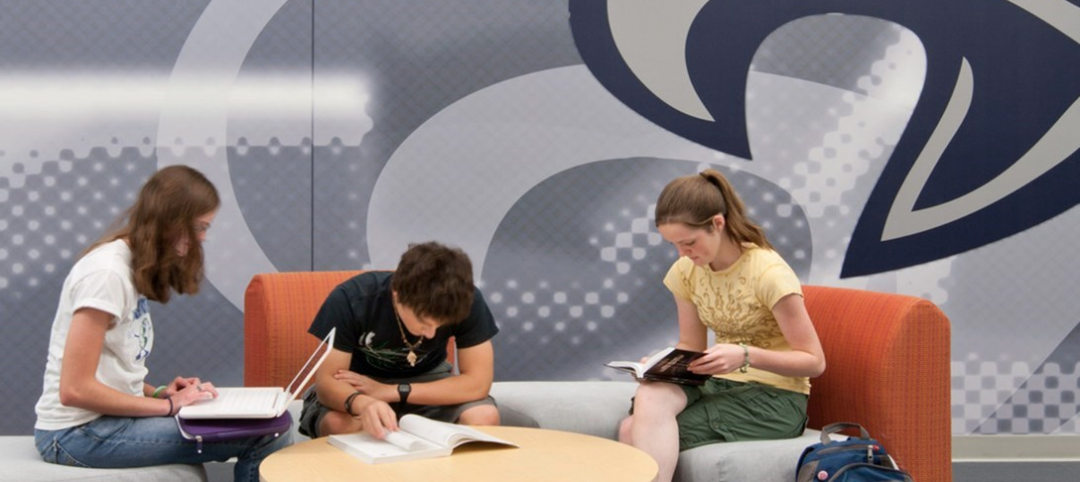Next month, Prince George’s County Public Schools (PGCPS) is scheduled to open the Colin L. Powell K-8 Academy in Fort Washington, Md., a 233,865-ft school with an occupancy of 2,000, whose construction budget is $106.2 million, according to the school district.
This is one of six schools that were built under PGCPS’s Blueprint Schools Program, a collaborative public-private partnership that has significantly reduced the schools’ construction time and cost.
The five other schools, which opened last August, are the 144,800-sf Drew-Freeman Middle School for classes 6-8 in Hillcrest Heights, Md.; the 162,610-sf Hyatt Middle School in Hyattsville, Md.; the 144,800-sf Kenmore School in Landover, Md., for 1,200 6th through 8th graders; the 144,800-sf Sonia Sotomayor Middle School in Adelphi, Md.; and the 144,800-sf Walker Mill Middle School in Capital Heights, Md., with a 1,200-person capacity.
In addition to STEAM labs with 3D printers and robotics, each Blueprint school will feature a video production studio, community clinics, and media center. The schools are solar- and electric vehicle charging-ready, with solar installation slated for completion in the fall of 2024. Hyattsville includes a black-box theater. And Colin Powell will have an elementary library, four Pre-K classrooms, and auxiliary gym, and innovation lab.
Commitment to diversity
The P3, known as Prince George’s County Education and Community Partners (PGCECP), delivered these schools in just 2½ years. Without this P3 agreement, it would have taken 16 years to fund and build them, according to Bob Hunt, Group Managing Director-Government, Education, and Non Profit Advisory for JLL, which served as the technical and financial advisor to PGCPS.
The P3 team includes development and financing members Fengate Asset Management and Gilbane Development Company, Gilbane Building Company (lead design-builder), Stantec (architect and design lead), and Honeywell (lead services provider).
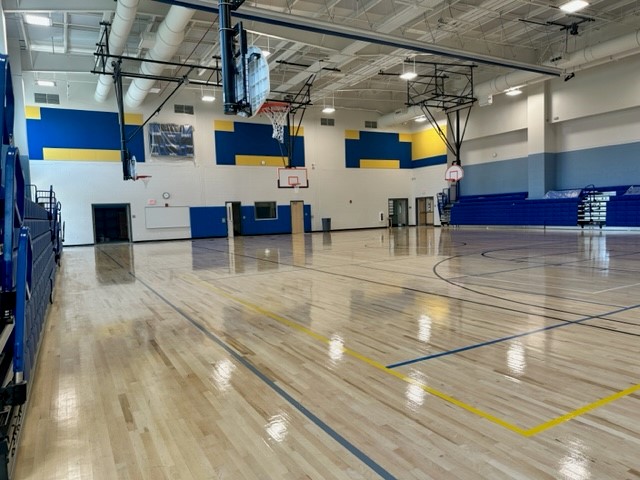
The Blueprint program’s planning, outreach, and support are geared toward increasing opportunities for small businesses, county-based businesses, and minority business enterprises. Scopes of work are created, and larger contracts are unbundled, to expand these businesses’ participation. This includes ongoing prequalification for all anticipated contracts for each key team member.
As of August 2023, PGCECP had exceeded its goal by awarding $134 million, or one-third, of its contracts for the schools built under Blueprint to Minority-owned businesses such as Arel Architects, which is part of the P3’s design team and has a mentor-protégé relationship with Stantec. Warren Builds Construction and Corenic Construction Group have similar arrangements with Gilbane. Three|E Consulting Group, a county-based business, serves as the economic inclusion and compliance team.
The next phase with more partners
Under a traditional design-bid-build contract, PGCPS estimates that the six schools would have cost an aggregate $868.8 million to design and construct. The schools in the Blueprint program were completed for a total of $485.8 million and include 30 years of facilities maintenance from Honeywell, which must adhere to MBE/CBB procurement requirements. PGCPS projects a savings of $170 million over three decades, compared to the traditional model.
Phase II of the Blueprint program will deliver eight more schools that further meet the needs of the district's 133,000 students and nearly 20,000 employees. Prince George’s County Education Collective was recently selected as Phase II’s final bidder. The Collective consists of equity members Plenary Americas US Holdings and Ellis Don Capital; MBE equity member Phoenix Infrastructure Group Investments, lead contractor MCN Build, and lead service providers US Facilities, Ellis Don Facilities Services, and RSC Electrical and Mechanical.
Related Stories
K-12 Schools | May 17, 2019
Tall schools, tight spaces: Giving students access to the outdoors requires considerable creativity
Verticality has some plusses, according to AEC firms that have engaged such projects recently.
K-12 Schools | Apr 25, 2019
How outdoor environments provide value to K-12 learning, health, and safety
Outdoor spaces at school offer students key opportunities to learn, problem solve, and mentally refresh.
K-12 Schools | Jan 21, 2019
Safer K-12 design: School should feel – and look – like school
In an age during which stories of bullying, school shootings, and mental health concerns are all too common, designers have a critical role to play in crafting K-12 schools that simultaneously promote engaged learning and student safety.
K-12 Schools | Nov 5, 2018
Modernizing schools is paying off in creating better learning and teaching environments
A new paper reports on a recent study of nine schools in Washington DC that gauged occupants’ perceptions.
K-12 Schools | Jul 26, 2018
K-12 market trends 2018: Common areas enable hands-on learning
Modern designs emphasize social and collaboration spaces outside the classroom.
| May 30, 2018
Accelerate Live! talk: From micro schools to tiny houses: What’s driving the downsizing economy?
In this 15-minute talk at BD+C’s Accelerate Live! conference (May 10, 2018, Chicago), micro-buildings design expert Aeron Hodges, AIA, explores the key drivers of the micro-buildings movement, and how the trend is spreading into a wide variety of building typologies.
| May 24, 2018
Accelerate Live! talk: Security and the built environment: Insights from an embassy designer
In this 15-minute talk at BD+C’s Accelerate Live! conference (May 10, 2018, Chicago), embassy designer Tom Jacobs explores ways that provide the needed protection while keeping intact the representational and inspirational qualities of a design.
K-12 Schools | Jan 25, 2018
Cost estimating for K-12 school projects: An invaluable tool for budget management
Clients want to be able to track costs at every stage of a project, and cost estimates (current and life cycle) are valuable planning and design tools, writes LS3P's Ginny Magrath, AIA.
K-12 Schools | Jan 24, 2018
Hawaii’s first net-zero public school
G70 is the architect, planner, and civil engineer of record for the project.
K-12 Schools | Jan 22, 2018
Innovative learning environments and our ‘Heschong Mahone moment’
An education market think tank proposes a radical research concept for evaluating learning environments.


